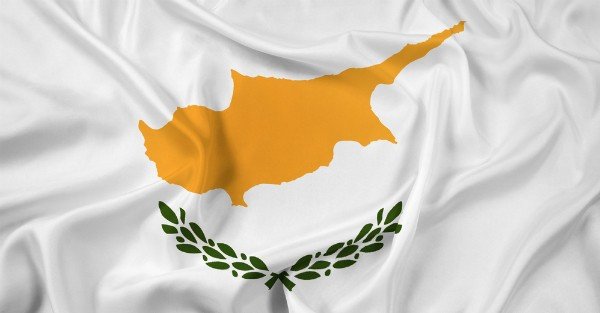Cyprus’ Digital Nomad Visa (DNV) has not garnered as much media attention as the Portuguese or Spanish DNVs. And while its requirements aren’t super lenient, the island is nonetheless a highly compelling option – especially for English-speaking digital nomads.
Let’s have a look at the program below…
Cyprus: An excellent island destination for English-speaking digital nomads
Fancy an extended remote working stint in a gorgeous island location? Located at the crossroads of Europe, Asia and Africa, Cyprus is a truly unique and alluring place.
And while neither the country’s cost of living nor its DNV program’s financial requirements are exceptionally low, it broadly scores really well as a quality lifestyle destination:

Source: Sovereign Cost of Living Index
Cyprus is the third-largest (and third-most populous) island in the Mediterranean, and it’s been a coveted trophy among conquering nations for centuries.
Populated mostly by ethnic Greeks, the country also boasts a substantial Turkish population. Tensions between these two groups led to outright conflict in 1974, followed by the island’s division into two countries — The Republic of Cyprus (Greek), and the internationally unrecognized Northern Cyprus (Turkish).
(Note: The Republic of Cyprus is a member of the European Union, and it is their Digital Nomad Visa program we’re focusing on today.)
Scores of global airlines fly to Cyprus on a weekly basis, and a flight from Athens to Larnaca, for example, only takes around one hour and 40 minutes.
Given the island’s history as a British colony, almost everyone on the island speaks English. So if you are looking for an English-speaking environment (and an amazing climate), Cyprus should suit you well.
And while the country’s median fixed broadband internet download speed is fairly slow – only 38 Mbps – you’re not likely to experience any issues in its major population centers. Also, its mobile internet is much faster, with an average download speed of 73 Mbps.
The Cypriot Digital Nomad Visa program at a glance
The “Cyprus Digital Nomad Visa” program allows nationals from outside of the EU to work remotely in Cyprus for one year. (EU citizens don’t need special permission to live and work in Cyprus. And if you’d like to stay longer, you can. More on this topic below…)
Let’s take a look at what you can expect…
| CYPRUS DIGITAL NOMADVISA PROGRAM |
KEY PROGRAM CONSIDERATIONS |
| Visa validity |
Initial validity: 1 year (12 months); Renewals: 2 years, for a total stay of up to 3 years |
| Recurring income requirements |
Monthly income requirements (after tax):
|
| Fixed local address required |
Yes |
| Clean criminal record required |
Yes |
| Health screening requirement |
Yes |
| Health insurance required |
Yes |
| Can the DNV lead to PR or citizenship? |
No |
| Digital nomad tax situation |
Standard conditions apply: Residence-based (worldwide) taxation after 183 days on the ground. Many tax breaks are available, however… |
And how does the program’s income requirements compare to those of other DNVs in Europe?
| DNV Program | Iceland | Cyprus | Greece | Portugal | Croatia | Spain |
| Monthly income requirements: Primary applicant | ISK 1 million (~$7,338) | €3,500 (~$3,845) | €3,500 (~$3,845) | €3,040 (~$3,340) | €2,365.45 (~$2,598) | €2,160 (~$2,373) |
As you can see from the above table, Cyprus’ financial requirements are on the pricier side of the spectrum – but it’s still pretty accessible; especially for solo applicants.
Unfortunately, however, you won’t be able to apply for the Cypriot DNV on the basis of savings only; for that, you’ll be better off investigating the Croatian program.
To check out some of the other European Digital Nomad Visa programs, click here.
Another downside of the Cypriot program – if you want to apply for it, you must first travel to Cyprus, as online applications aren’t possible. Consult this website to learn more about the application procedure.
Finally, as of March 3, 2022, there is an active cap of 500 residence permits to be issued to digital nomads. However, we suspect the ceiling will be raised if the program proves successful…
What can I expect to spend on living expenses?
Cyprus is fairly inexpensive, especially if you settle outside of Limassol, the county’s primary tourist hotspot.
For example:
A one-bedroom apartment in an expat area in Nicosia — the country’s capital — will cost you around $630 per month. And $1,100 will get you a nice three-bedroom apartment.
In Limassol, however, rentals are more expensive. You can expect to pay upwards of $1,100 for a one-bedroom apartment, and $2,300+ for a three-bedroom place.
The difference between the cost of living in these cities is significant, so be sure to do your homework properly when you’re investigating accommodation options.
A word on Digital Nomad taxes in Cyprus
In Cyprus, you typically become a tax resident after you spend the initial 183 days in the country. And with a top tax rate of 35% on personal income, Cyprus does not look like a tax haven.
Yet, Cyprus can be very tax efficient, depending on your situation. The Cypriot government offers multiple tax breaks and exemptions for expats relocating to the island. You will likely pay no taxes to Cyprus on your worldwide income, even if you spend more than six months yearly on the ground there.
Also, Cyprus has multiple double-taxation treaties, which can help you avoid being taxed twice on the same income.
The bottomline…
If working remotely from an English speaking island location, combined with EU visa-free travel privileges sounds like your bag, then the Cypriot DNV program could be well worth a look.
And given the country’s relatively low cost of living, idyllic location and attractive tax incentives, you may well be tempted to stay there longer term.








